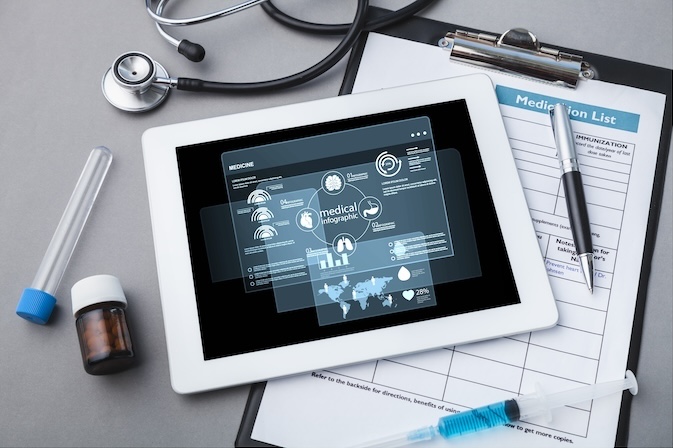Integrated healthcare systems are transforming the healthcare industry by enhancing patient care and operational efficiency. As we delve into the myriad advantages these systems offer, it’s clear that their impact extends across all facets of healthcare delivery—from clinics to patients.
In this blog, we aim to provide a comprehensive overview of the benefits of integrated healthcare systems, spotlighting how they address current challenges and pave the way for a more cohesive, efficient, and patient-centered healthcare experience.
Top Takeaways:
- The benefits of integrated delivery systems in healthcare are transformative: Integrated healthcare systems offer a seamless approach to patient care, enhancing coordination and fostering innovation for better health outcomes and efficiency.
- Navigating the complex landscape of regulatory, technological, and organizational challenges is crucial for leveraging the integrated healthcare delivery benefits.
- Embracing the benefits of system integration in healthcare enables clinics to offer comprehensive, efficient, and innovative patient care, significantly enhancing health outcomes.
Table of Contents:
- Why an Integrated Healthcare System is so Important
- Benefits of Healthcare Integration for Doctors and Clinics
- Benefits of an Integrated Healthcare System for Patients
- Overcoming Challenges in Integrated Healthcare Implementation
- Examples of Integrated Healthcare Systems
- The Future of IHS
- How Topflight Can Propel Integrated Systems Health Care Forward
Why an Integrated Healthcare System is so Important
In today’s rapidly evolving healthcare landscape, the shift towards IHS has become more than just a trend—it’s a necessity.
The Evolution of Healthcare Needs and Technology
Let’s start with the definition of integrated health care.
What is integrated health care, if not the confluence of modern technology and evolving healthcare demands? Integrated healthcare systems represent a holistic approach, combining various healthcare services and providers into a cohesive unit to offer comprehensive care to patients.
As technology advances, it enables these systems to become more efficient, responsive, and patient-centered. The evolution of healthcare needs — driven by an aging population, the rise in chronic diseases, and heightened expectations for personalized care — demands a departure from traditional, siloed healthcare models.
Integrated health care harnesses technology to meet these needs, facilitating everything from telehealth consultations to real-time health monitoring, thus ensuring that patients receive the right care at the right time.
Addressing the Fragmentation in the Healthcare Industry
What is one benefit of integrated care that’s front and center? It directly addresses the rampant fragmentation within the healthcare industry — a major barrier to delivering effective care. Fragmentation leads to gaps in care, inefficiencies, and a disjointed experience for patients navigating the healthcare system.
By bringing together physical, mental, and social health services, IHS ensure a seamless continuum of care. This coordination is particularly crucial for patients with complex, chronic conditions who require services from multiple providers. Integrated care not only streamlines communication among these providers but also consolidates patient data into a single, accessible record.
This holistic view empowers providers to make informed decisions, tailor treatments to individual patient needs, and ultimately enhance the quality of care delivered.
Benefits of Healthcare Integration for Doctors and Clinics
IHS represents a paradigm shift in the way healthcare providers operate, offering a multitude of advantages that enhance both the efficiency of clinical operations and the quality of patient care.
Comprehensive Patient Care through Integrated Delivery Systems
One of the paramount benefits of an integrated healthcare delivery system is the provision of comprehensive patient care. Integrated systems enhance patient care coordination by creating a seamless continuum of care that bridges the gap between various healthcare services and providers. This holistic approach ensures that all factors contributing to a patient’s health, including physical, mental, emotional, and social well-being, are considered in the care plan. Key aspects include:
- Holistic Health Consideration: Addressing the entire spectrum of a patient’s health needs, from preventive care to acute treatment and chronic condition management.
- Enhanced Coordination: Facilitating better communication and collaboration among different healthcare professionals involved in a patient’s care.
- Personalized Care Plans: Tailoring treatment plans to meet the unique needs of each patient, thereby improving patient satisfaction and health outcomes.
Streamlining Operations with Enhanced Data Sharing
The role of technology in facilitating seamless information exchange cannot be overstated when discussing integrated healthcare systems benefits. By leveraging advanced technological platforms and electronic health records (EHRs), healthcare providers can significantly streamline their operations. This enhanced data-sharing capability leads to numerous operational improvements:
- Reduced Duplication: Minimizing redundant tests and procedures by ensuring all healthcare providers have access to a patient’s complete medical history.
- Efficient Communication: Enabling real-time updates and information sharing among clinicians, thereby speeding up decision-making processes.
- Comprehensive Patient Records: Offering a unified view of patient records that is accessible across different healthcare settings.
Related: Surescripts Integration
Financial and Administrative Efficiency
IHS offer significant cost benefits and administrative simplification for healthcare providers. By consolidating disparate systems and processes into a cohesive framework, clinics and hospitals can achieve greater financial and administrative efficiency. This integration results in:
- Cost Reduction: Lowering overhead costs by eliminating redundant systems and streamlining administrative processes.
- Simplified inging and Documentation: Enhancing the accuracy and efficiency of billing and documentation workflows, thus reducing the administrative burden on staff. Ideally, it’s all about automation in medical billing.
- Resource Optimization: Maximizing the use of available resources and reducing waste through improved scheduling and patient flow management.
Fostering Innovation in Patient Care
Lastly, integrated health care systems play a crucial role in fostering innovation in patient care. By creating an environment that encourages the adoption of new technologies and practices, healthcare providers can offer cutting-edge treatments and services that improve patient outcomes. Examples of technological innovations enabled by integration include:
- Telehealth Services: Expanding access to care through virtual consultations and remote monitoring, especially for patients in underserved areas.
- Digital Health Tools: Utilizing apps and wearable devices to engage patients in their own care, promoting healthier lifestyles and proactive management of chronic conditions.
- Data Analytics: Leveraging big data and analytics to derive insights that inform personalized treatment plans and preventive care strategies.
The key tools to take advantage of IHS are EHR solutions and medical practice management systems.
Benefits of an Integrated Healthcare System for Patients
IHS are redefining the landscape of patient care by offering a myriad of benefits that address the core needs and challenges faced by patients today. From improving access to care to leveraging technology for better health management, these systems play a pivotal role in enhancing the overall patient experience. Let’s delve into how these systems are making a significant impact on patient care.
Improved Access to Care
Why is integrated healthcare important? One of the most compelling answers lies in its ability to dramatically improve access to care for patients across various demographics. Integrated health care systems break down the barriers that traditionally limit patient access to quality care.
- Overcoming Geographical Barriers: With telehealth services and remote monitoring, patients living in rural or underserved areas can now access specialist consultations and continuous care without the need for extensive travel.
- Addressing Logistical Challenges: Integrated systems streamline appointment scheduling and reduce wait times, making it easier for patients to access timely care.
This enhanced accessibility ensures that more patients can receive the care they need when they need it, regardless of their geographical location or logistical constraints.
Enhanced Continuity and Coordination of Care
At the heart of IHS is the promise of enhanced continuity and coordination of care. This aspect is crucial for improving health outcomes and ensuring that patients receive holistic and uninterrupted care.
- Personalized care plans consider the full spectrum of a patient’s health needs, ensuring treatments are tailored to their unique conditions and preferences.
- Improved communication between healthcare providers ensures that care is coordinated and that every provider is informed about the patient’s health status, reducing the risk of errors and duplicate tests.
By fostering a seamless flow of information and collaboration among care providers, integrated health care systems ensure that patients experience a more coherent and effective care journey.
Empowering Patients Through Technology
The benefits of an integrated healthcare system extend into the realm of patient empowerment, primarily through the innovative use of technology. Digital tools and health apps are revolutionizing the way patients interact with their healthcare providers and manage their own health.
- Health Apps and Digital Tools: Patients can monitor their health conditions, track their progress, and access health information, all at their fingertips.
- Access to Information: Integrated systems provide patients with easy access to their medical records, test results, and treatment plans, enabling them to make informed decisions about their health.
This empowerment leads to increased patient engagement, adherence to treatment plans, and ultimately, better health outcomes.
Mental Health: A Case Study in Integration
Mental health services stand to benefit significantly from the integration of healthcare systems. The holistic approach of integrated care ensures that mental health is treated alongside physical health, providing a comprehensive care model that addresses all aspects of a patient’s well-being.
- Holistic Approach to Mental Health: Integrated care models treat mental health as an integral part of overall health, ensuring patients receive holistic care that addresses both physical and mental health needs.
- Coordinated Care for Mental Health Conditions: By facilitating communication among healthcare providers, integrated systems ensure that mental health conditions are treated with the same rigor and coordination as physical health conditions.
Also Read: Mental Health App Development Guide
This approach not only improves access to mental health services but also helps in reducing the stigma around seeking help for mental health issues, promoting a more inclusive and supportive environment for patients.
By enhancing access to care, improving the continuity and coordination of care, empowering patients through technology, and providing comprehensive mental health services, integrated health care systems are setting new standards for patient-centered care.
Overcoming Challenges in Integrated Healthcare Implementation
While the benefits of integrated healthcare systems are vast, implementing these systems comes with its own set of challenges. From regulatory hurdles to technological and organizational obstacles, healthcare organizations must navigate a complex landscape to fully realize the benefits of integration in healthcare.
Navigating Regulatory Hurdles
One of the major challenges in the implementation of IHS is navigating the intricate web of regulatory hurdles. Compliance and data privacy issues stand at the forefront of concerns for healthcare organizations aiming to integrate their systems. The benefits of integrated healthcare cannot be fully realized without addressing these critical regulatory aspects.
- Compliance with HIPAA: Ensuring that integrated health care systems comply with the Health Insurance Portability and Accountability Act (HIPAA) is paramount. This involves establishing robust security measures to protect sensitive patient data and adhering to standards that safeguard patient privacy.
- Data Privacy: The sharing and exchange of patient data among different healthcare providers necessitate clear protocols to protect patient privacy. It’s crucial that data is accessed only by authorized personnel, maintaining the integrity and confidentiality of patient information.
- Interoperability Standards: Achieving seamless information exchange requires adherence to interoperability standards such as HL7, SMART on FHIR, and Mirth Connect. These standards ensure the secure and standardized exchange of healthcare data between various systems and platforms, facilitating a cohesive healthcare environment.
Navigating these regulatory hurdles is essential for the safe and effective implementation of IHS, ultimately enhancing patient care and operational efficiency.
Also Read: HIPAA Compliant App Development Guide
Technological and Organizational Challenges
Beyond regulatory compliance, healthcare organizations face technological and organizational challenges when implementing IHS. Addressing these challenges is crucial for achieving the full potential of integration in healthcare.
Legacy Systems Integration: Many healthcare organizations operate legacy systems that may not be immediately compatible with new integrated healthcare technologies. Bridging this gap requires careful planning and execution to ensure seamless integration and functionality across all systems.
Adoption of Interoperability Technologies: Implementing technologies that enable EHR interoperability, such as HL7, SMART on FHIR, and Mirth Connect, is vital. These technologies facilitate efficient data exchange and communication between different healthcare systems, paving the way for comprehensive, integrated care solutions.
Read more on Mirth integration
Change Management: The transition to integrated health care systems often necessitates significant changes in workflows, processes, and roles within organizations. Effective change management strategies are essential for overcoming resistance and ensuring smooth adoption across departments and stakeholders. This includes:
- Keeping all stakeholders informed about the changes and the benefits they bring.
- Providing comprehensive training and ongoing support to healthcare providers and staff to maximize the benefits of the new systems.
- Strong leadership is crucial for driving the change and addressing any challenges that arise during the implementation process.
Overcoming these technological and organizational challenges is key to unlocking the benefits of integrated healthcare systems. By addressing these issues head-on, healthcare organizations can ensure the successful adoption and maximization of integrated healthcare solutions, leading to improved patient care, operational efficiency, and innovation in healthcare services.
Examples of Integrated Healthcare Systems
Integrated healthcare systems are revolutionizing the way care is delivered, making healthcare more cohesive and patient-centered. Let’s take a closer look at some exemplary IHS models that set benchmarks for quality care and operational efficiency.
- Mayo Clinic: A global leader with a patient-centered model, Mayo Clinic ensures comprehensive care through seamless collaboration among specialists across various locations.
- Kaiser Permanente: A non-profit model serving 12 million members, Kaiser combines primary, emergency, and specialized care under one roof for efficient, coordinated services.
- Cleveland Clinic: Known for its multidisciplinary approach, Cleveland Clinic offers accessible, high-quality care across its network of hospitals and outpatient centers.
- Partners HealthCare: Integrating care across primary, specialty, hospitals, and home care, Partners HealthCare emphasizes health information technology for clinical integration.
- Geisinger Health System: A value-based care leader focusing on innovative practices and preventive care, Geisinger excels in managing chronic conditions like diabetes.
- Intermountain Healthcare: A nonprofit Utah-based system recognized for proactive healthcare management, focusing on preventive care and resource efficiency.
These examples underscore the critical role of education and continuous learning in the successful implementation of integrated health care systems. By fostering a culture of knowledge sharing and innovation, organizations like those mentioned above are not only enhancing the quality of care but are also paving the way for future advancements in the healthcare sector.
The Future of IHS
The landscape of IHS is on the cusp of transformation, driven by a confluence of demographic shifts, technological advancements, and evolving patient expectations. As we look to the future, several key trends are poised to shape the trajectory of these medical systems, offering a glimpse into the next generation of healthcare delivery.
Digital Health Solutions
The proliferation of artificial intelligence, blockchain technology, and medical device integration is set to revolutionize patient care. These digital tools offer unprecedented opportunities for monitoring health, managing chronic conditions, and personalizing treatment plans, thereby enhancing the overall value of healthcare services.
Social Determinants of Health
There is a growing recognition of the impact of social factors such as income, education, and environmental conditions on health outcomes. Integrated health care systems are increasingly incorporating strategies to address these determinants, aiming to reduce health disparities and improve access to care for all segments of the population.
Scope and Scale of Integration
The future will see a more extensive integration of healthcare services across sectors, regions, and even countries. This expansion is essential for creating a more cohesive healthcare ecosystem that can respond effectively to global health challenges and pandemics.
Personalized and Preventive Care
The demand for tailored healthcare solutions is rising, fueled by advances in genomics and precision medicine. Integrated healthcare systems are at the forefront of this shift, leveraging technology and data analytics to deliver customized care plans that emphasize prevention and wellness.
In addition, the management of chronic diseases such as diabetes is undergoing a transformation within integrated systems. With a focus on education and patient empowerment, these systems are implementing innovative approaches to care that not only improve individual health outcomes but also add significant value to the healthcare system as a whole.
As we embrace these changes, the role of integrated health care systems in shaping the future of health care becomes increasingly clear. By focusing on holistic care, technological innovation, and addressing the broader determinants of health, IHS are laying the groundwork for a healthier, more equitable future for all.
How Topflight Can Propel Integrated Systems in Health Care Forward
In the realm of healthcare, where the integration of systems can significantly enhance both clinic operations and patient outcomes, Topflight stands at the forefront of innovation and efficiency.
Our extensive experience in developing versatile medical applications and integrating them with a broad spectrum of healthcare systems and platforms positions us as an ideal partner for clinical executives and health app founders. Here’s how we make a definitive impact:
Tailored Integration Solutions with Major EHRs
- EHR Expertise: We pride ourselves on our proficiency in integrating with all major Electronic Health Records (EHR) systems, including Cerner, Epic, and Allscripts. This capability ensures that healthcare providers can seamlessly access and share critical patient information, enhancing care coordination and outcomes.
- Interoperability Technologies: Our toolkit includes advanced EHR interoperability technologies such as SMART on FHIR, Mirth Connect, and EPIC Private APIs. These technologies facilitate the smooth exchange of health information across various healthcare applications and systems, underpinning the benefits of integrated healthcare services.
Read up on building a health app with Epic EHR/EMR integration in our dedicated blog.
Demonstrated Success in Healthcare Integration
Our portfolio showcases several projects that exemplify our commitment to advancing interoperability in healthcare:
- Epic EHR integration project: Comprehensive workflow optimization by integrating multiple PACS, billing systems, and partner facilities. This project not only streamlined workflows but also enhanced patient care through improved data accuracy and availability.
- RTHM: Integrates with wearables, showcasing our expertise in connecting wearable technology with broader healthcare systems for real-time health monitoring and data collection.
- GaleAI: Integrates with EHRs, demonstrating our ability to harness AI for deeper insights into patient data, thus enhancing medical coding accuracy and streamlining billing processes. The synergy between AI and medical coding is setting new standards for efficiency and reliability in healthcare billing.
- SolveME: Effectively connects providers and patients, facilitating smoother communication and remote monitoring, thereby improving patient engagement and satisfaction.
These case studies are just a glimpse into our capability to deliver sophisticated healthcare solutions that embody the integrated systems healthcare benefits.
For the hands-on blueprint, our step-by-step guide on how to develop SMART on FHIR apps turns those interoperability tools into a production-ready workflow.
Commitment to Overcoming Implementation Challenges
We understand that the path to integrated healthcare is fraught with regulatory, technological, and organizational hurdles. Our approach is designed to navigate these challenges effectively:
- Regulatory Compliance: Ensuring full compliance with HIPAA and other relevant regulations, we prioritize patient data privacy and security in every project.
- Change Management: Our team works closely with healthcare organizations to manage the transition to integrated systems smoothly, focusing on training, support, and clear communication to minimize disruptions.
- Innovation and Customization: Recognizing the unique needs of each provider, we offer customized solutions that leverage the latest in digital health technology to meet specific operational and care delivery goals.
- Seamless User Experience: By focusing on developing or upgrading medical solutions that integrate flawlessly with existing workflows, we ensure both patients and providers experience a seamless transition and usage. Our approach minimizes learning curves and enhances user satisfaction by making new technologies feel like natural extensions of current practices.
Also Read: Healthcare App Development Guide
Why Partner with Topflight?
Choosing Topflight as your partner in developing and implementing integrated healthcare systems means opting for a knowledgeable ally committed to enhancing health care delivery. Our expertise, combined with a deep understanding of the healthcare landscape, enables us to provide solutions that are not only technologically advanced but also pragmatic and aligned with the actual needs of clinics and patients.
In essence, Topflight is more than a developer of health applications; we are architects of a future where integrated healthcare systems improve the lives of patients and the operational success of providers. Let’s embark on this transformative journey together, leveraging the full spectrum of benefits of integrated healthcare services for a healthier tomorrow.
Imagine a world where every aspect of your healthcare—from your annual check-up to managing chronic conditions—is seamlessly connected. IHS make this a reality, offering a holistic approach that ensures your care is coordinated, personalized, and efficient. By breaking down the barriers between different providers, these systems not only enhance the quality of patient care but also streamline operations, making health care more accessible and less stressful for everyone involved. Have you ever wondered how your medical records move so smoothly from your GP to a specialist without you lifting a finger? That’s where interoperability standards like Health Level Seven (HL7) and SMART on FHIR come into play. These frameworks ensure that different medical IT systems can talk to each other, sharing your health data safely and efficiently. This means no matter where you are or who you’re seeing for care, your providers have the most up-to-date information at their fingertips, leading to better, faster, and more personalized treatment. Integrating healthcare systems is a bit like conducting an orchestra—every player needs to be in perfect harmony, but getting there isn’t always easy. The main challenges include navigating complex regulatory requirements, ensuring different technologies can work together seamlessly, and guiding organizations through significant changes. Overcoming these hurdles requires a clear vision, strong leadership, and a commitment to continuous improvement. It’s about embracing innovation, fostering collaboration, and always keeping the patient’s best interests at heart. Hopefully, this blog has helped you answer, “What is integrated health care?” and understand the benefits of integrated healthcare.Frequently Asked Questions
What makes integrated healthcare systems so crucial for modern healthcare delivery?
How do standards like HL7 and SMART on FHIR revolutionize data sharing in health care?
What are the biggest challenges in adopting integrated healthcare systems, and how can they be overcome?






